Revolutionize Your Credentials with FirstCert

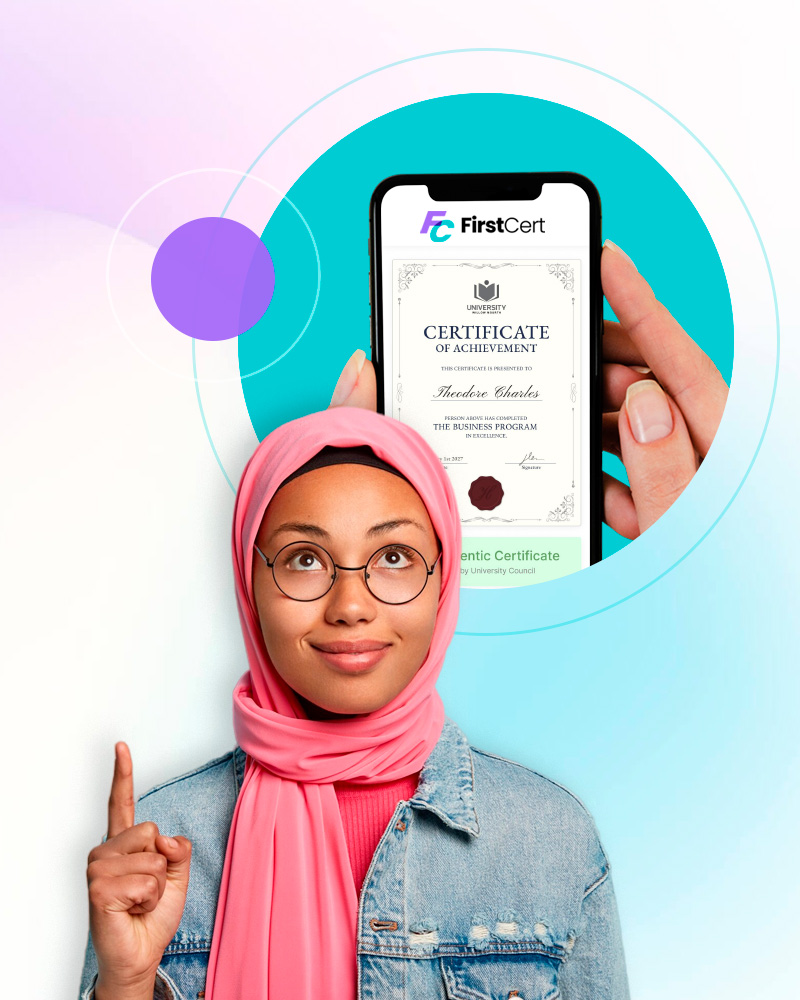
Introducing FirstCert

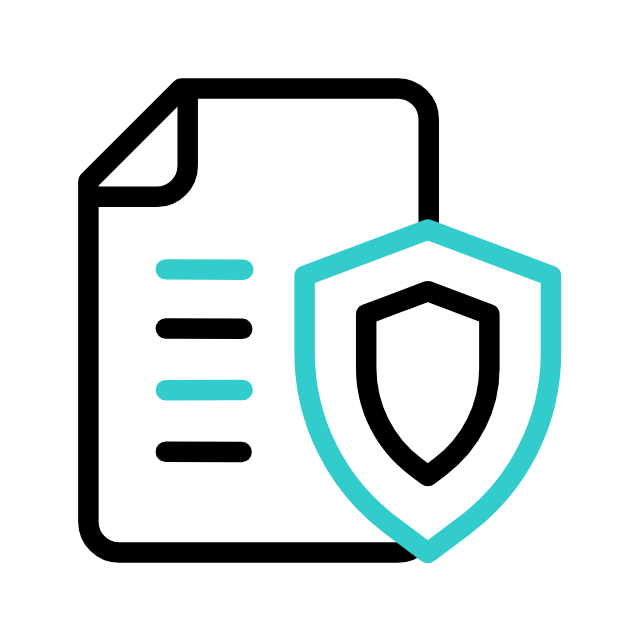
Unparalleled Security

Empowerment for Individuals
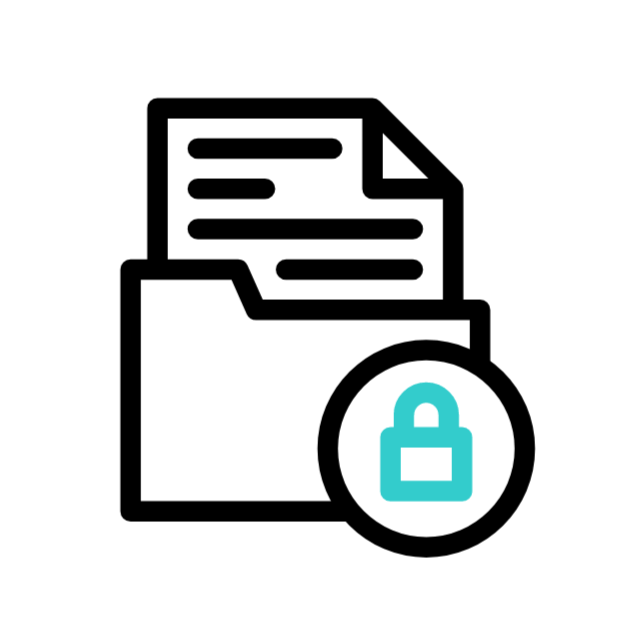
Enhanced Privacy

Innovative Solutions for Complex Problems
Problem Statement

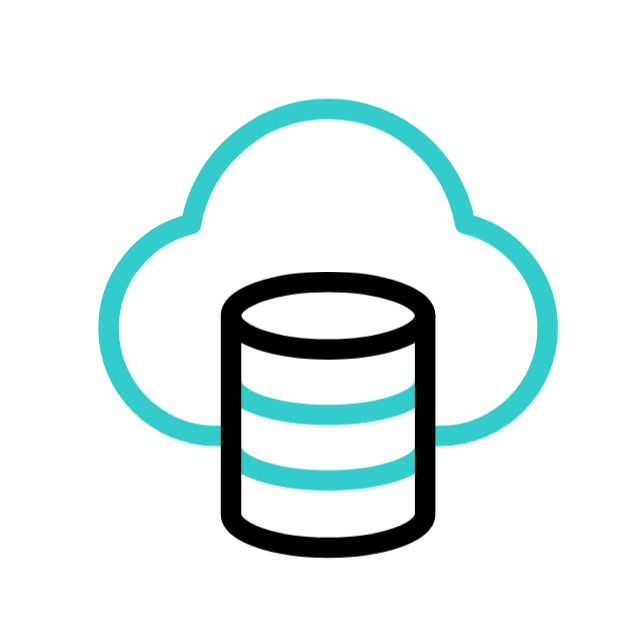
Storage
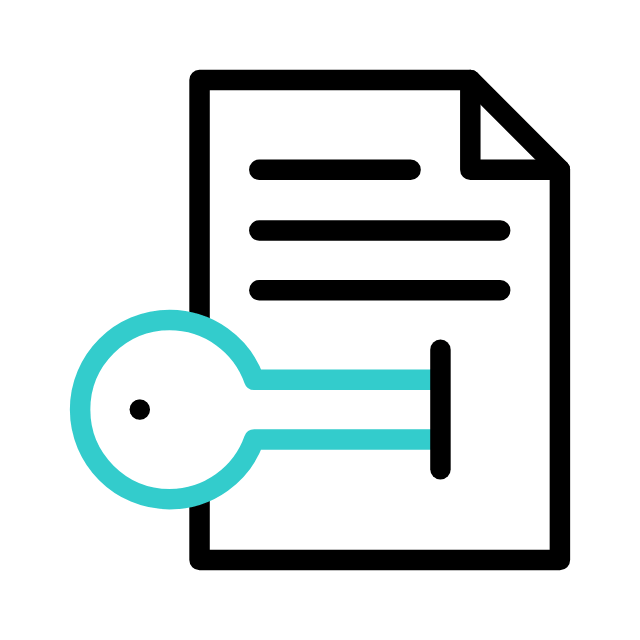
Accessibility
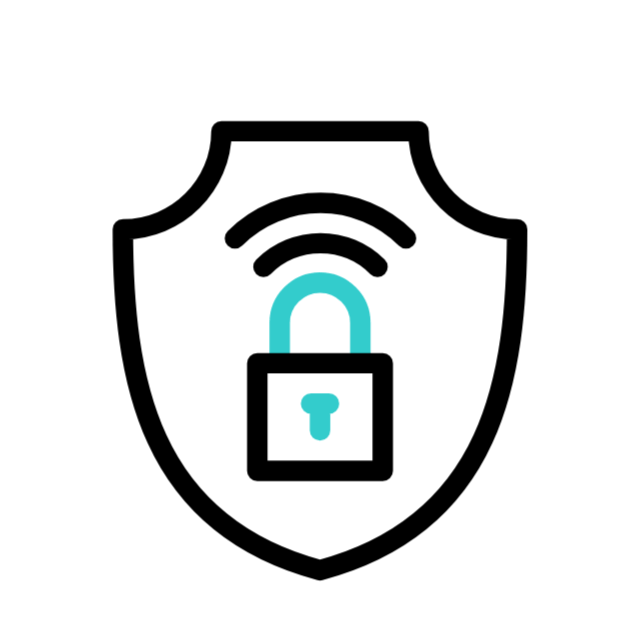
Authenticity
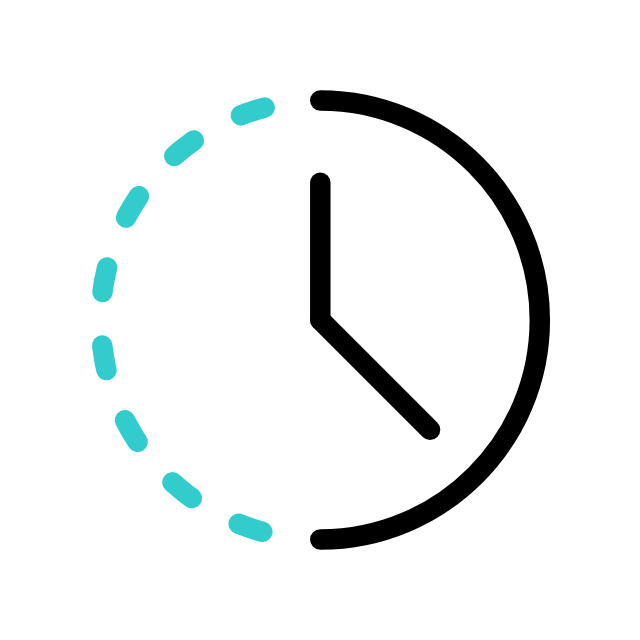
Time
CREDENTIAL INSTITUTION
Revolutionize Credential
Management with FirstCert
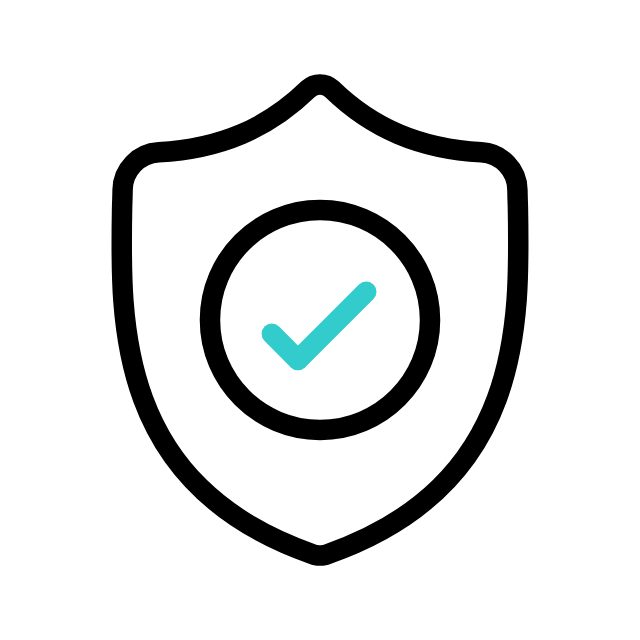
Secure
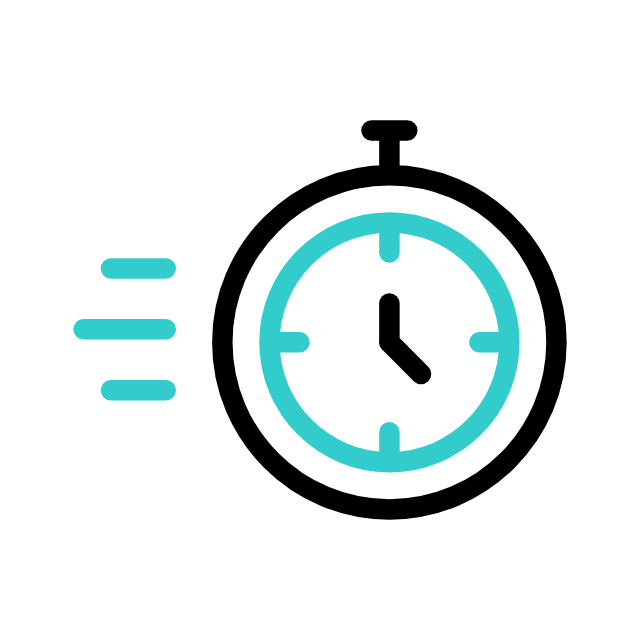
Time Saving
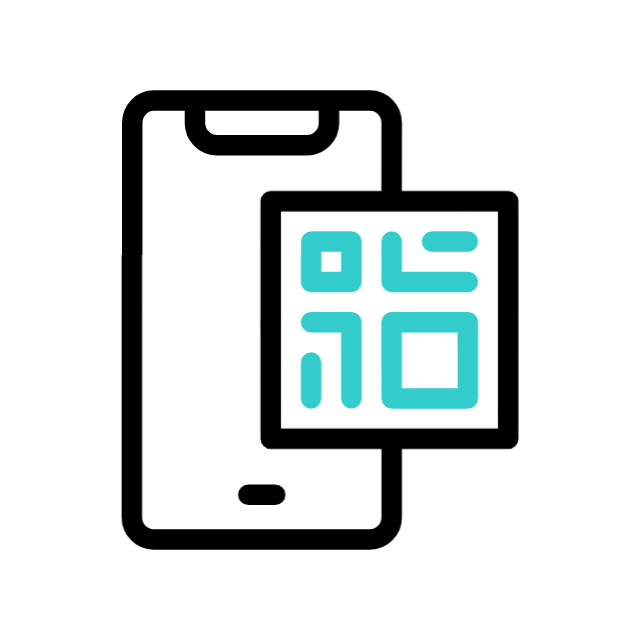
Easy Verification
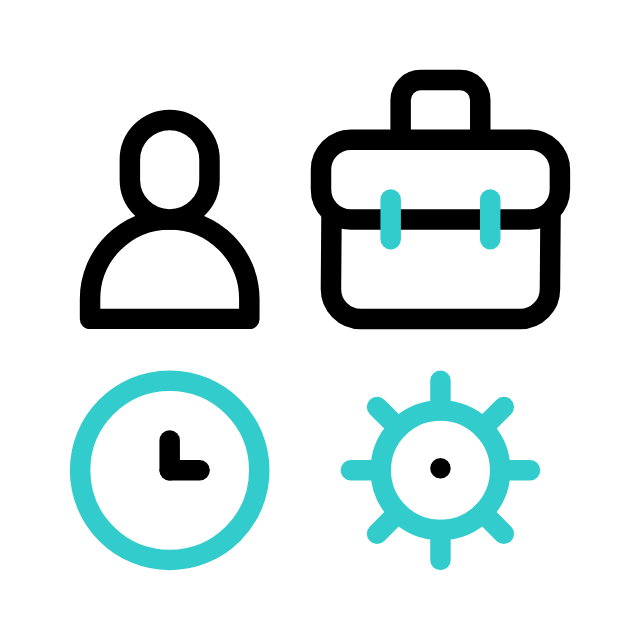
Productivity
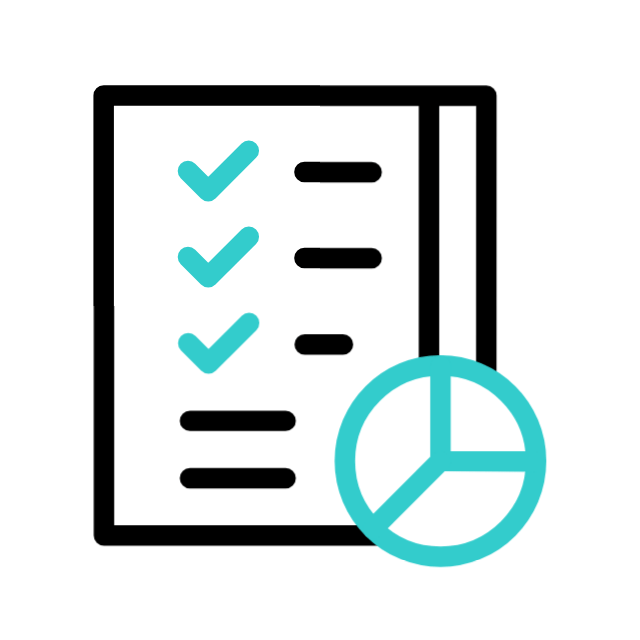
Data Analytics
FROM PAPER TO DIGITAL
Traditional Certificates VS FirstCert
- Medium
- Storage
- Verification
- Process
- Time
- Cost
- Accessibility
- Portability
- Security
- Authentication
Traditional
- Paper
- Physical holder
- Via phone call
- Manual processes for issuing, recording and managing
- Time consuming due to administrative procedures
- Printing, mailing, and storage
- Limited to those who holds the physical certificate
- Physical document as proof
- Vulnerable to loss, damage or theft
- Difficult without access to the original issuing institution

- NRecord on digital
- NDecentralized blockchain network
- NApps / QR codes / Website
- NAutomated through smart contract
- NInstant
- NInitial setup cost
- NAnywhere with internet
- NVia email, QR codes or links
- NImmutable, secure against loss, damage and unauthorized alterations
- NEasy for anyone with access to ensure transparency and trust
Traditional
- Medium: Paper
- Storage: Physical holder
- Verification: Via phone call
- Process: Manual processes for issuing, recording and managing
- Time: Time consuming due to administrative procedures
- Cost: Printing, mailing, and storage
- Accessibility: Limited to those who holds the physical certificate
- Portability: Physical document as proof
- Security: Vulnerable to loss, damage or theft
- Authentication: Difficult without access to the original issuing institution

- Medium: Record on digital
- Storage: Decentralized blockchain network
- Verification: Apps / QR codes / Website
- Process: Automated through smart contract
- Time: Instant
- Cost: Initial setup cost
- Accessibility: Anywhere with internet
- Portability: Via email, QR codes or links
- Security: Immutable, secure against loss, damage and unauthorized alterations
- Authentication: Easy for anyone with access to ensure transparency and trust
FirstCert Process
How it works
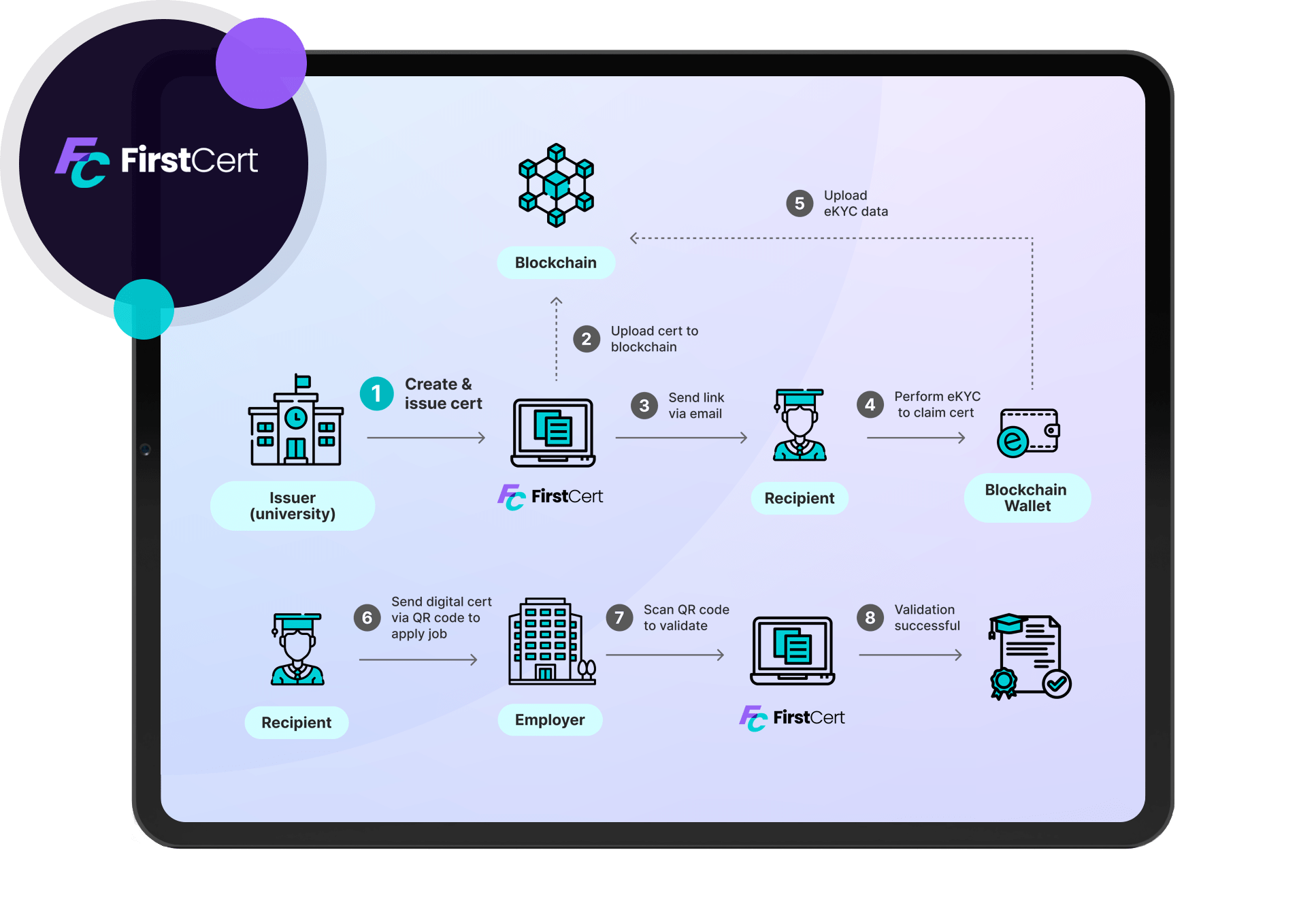

FirstCert Process
How it works
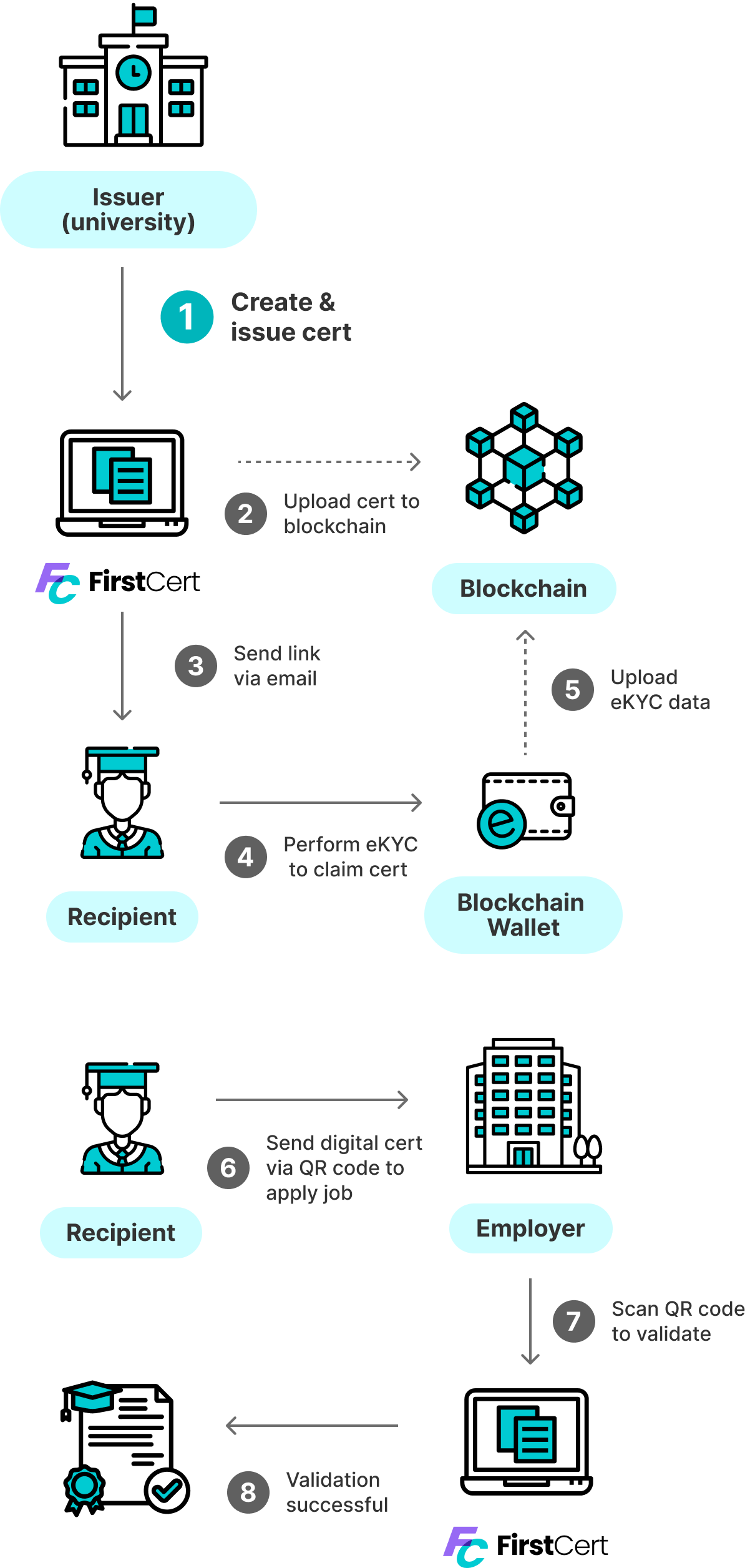

Pain points
Case Study
One compelling use case for certificate tokenization involves the buying and selling of academic credentials.
With traditional paper-based certificates, verifying the authenticity of academic qualifications can be cumbersome and time-consuming.

Questions & Answers
FAQs
What is a blockchain certificate?
A blockchain certificate is a digital document that records educational or professional credentials on a blockchain. This ensures the certificate is secure, immutable, and easily verifiable. Unlike traditional certificates, blockchain certificates leverage cryptographic algorithms to prevent forgery and tampering.
What are the primary benefits of blockchain certificate?
The primary benefits of blockchain certificates include enhanced security and immutability, instant and decentralized verification, global accessibility and recognition, reduced fraud risk, and improved efficiency in issuance and management of credentials.
What are the advantages of blockchain certificates over traditional certificates?
Blockchain certificates offer enhanced security, instant verification, permanence, and ease of access. They are resistant to forgery, cannot be lost or damaged, and provide a streamlined process for verifying credentials without the need for intermediaries.
How can employers verify a blockchain certificate?
Employers can verify a blockchain certificate by accessing the blockchain ledger where the certificate is recorded. They can use a provided digital key or QR code to check the certificate’s authenticity and verify its details instantly without needing to contact the issuing institution.
Can blockchain certificates be revoked or updated?
Yes, blockchain certificates can be revoked or updated. This is usually done by adding a new transaction to the blockchain that indicates the change in the status of the certificate, ensuring the history and updates are transparent and traceable.
How does blockchain ensure the privacy of certificate holders?
Smart contracts play a crucial role in real-world asset tokenization by automating and enforcing the terms of agreements related to tokenized assets. These self-executing contracts are programmed with predefined rules and conditions governing asset ownership, transfer, and management. Smart contracts facilitate the issuance, transfer, and redemption of digital tokens representing ownership stakes in real-world assets, without the need for intermediaries.
They enable secure and transparent transactions, automate compliance and regulatory requirements, ensure the integrity of asset ownership records, and reduce administrative overhead.









